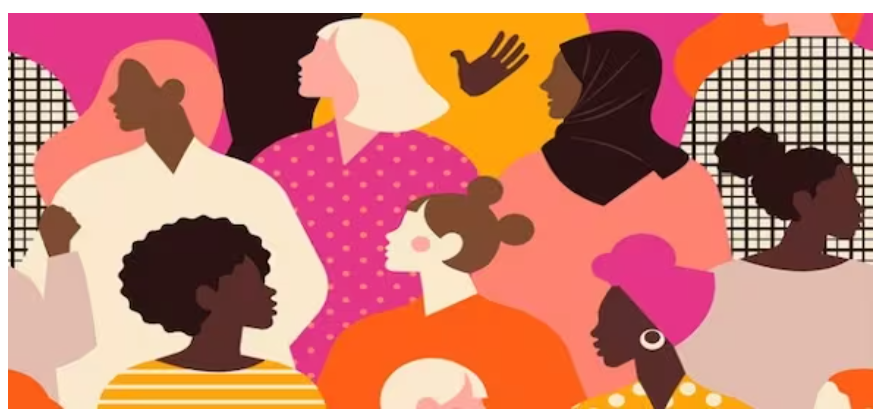The vision of Nari Shakti and women-led development can hit a roadblock if unequal distribution of unpaid care responsibilities is not recognized, redistributed, and reduced. Adequate provision of institutional care facilities for childcare, disability care, or elderly care, will contribute to reducing the unpaid care work responsibilities of women, writes Dr. Deepshikha Singh of Mobile Creches, and Arkja Kuthiala from FORCES.
In recent times, Indian policy dialogues have shifted from development of women to women leading the country’s development. This is envisaged through the realization of their power or ‘Nari Shakti’, a term popularized by the Prime Minister Narendra Modi.
Building on this vision, the G20 New Delhi Leader’s Declaration included the setting up of a Working Group on the Empowerment of Women. ‘Nari Shakti Vandan Adhiniyam’ or the Women’s Reservation Bill that seeks to provide 33% reservation to women in Lok Sabha and State Assemblies has also been introduced to increase women’s political representation in the country.
But can women be at the forefront of development, while most of them are excessively burdened with unpaid care work? The socially constructed heteronormative gender roles in the society view women as caregivers and secondary earners, while men are viewed as the providers. This helps perpetuate the unequal distribution of unpaid care work. On an average, women in India spend 7.2 hours in a day on cooking, cleaning, and care for their household members (child, elderly, sick or disabled) as opposed to 2.8 hours spent by men.
Women who are engaged in paid work, spend double the amount of time on unpaid care than men engaged in paid work. The intensity of work and the time spent increases with poverty and other forms of marginalities. Unequal distribution of unpaid care work creates a hierarchy that reinforces gender power dynamics within the domestic and public sphere. This becomes a key contributor to gender inequality and therefore an impediment to realising ‘Nari Shakti.’
Care is essential for households and societies to function. However, the disproportionate responsibility of unpaid care work on women results in time poverty that impacts their ability to progress in education and join paid work. This also affects the quality of care provided, thus leading to poor outcomes for families and societies at large.
Women’s excessive unpaid care work responsibilities are a determining factor in the low female labor force participation of the country (32.8%). Their care work responsibilities limit women’s opportunities and choices for economic, social, and political participation and affects their health, happiness, and overall life satisfaction. Poor public infrastructure and the impact of climate change further adds to the unpaid care work of women especially of those belonging to poor and marginalized sections as the procurement of resources takes more time.
The perceived role of women in the domestic sphere has implications on their engagement outside it as well. They face discrimination in almost all sectors of employment in terms of wages, working conditions, employer bias, and lack of upward mobility. About 82% of the total number of working women in India are employed in the informal sector that is characterised by low job security, nominal social security entitlements, inadequate regulations as well as high chances of exploitation and violence at workplace.
Further, even in the domain of paid work, care jobs are feminised. Domestic workers, Anganwadi workers, ASHA workers and agricultural workers are primarily women. They continue to remain undervalued and underpaid. Anganwadi workers and ASHA are paid an honorarium that is often less than the minimum wage. They are referred to as ‘volunteers’ despite having clear work deliverables.
The vision of Nari Shakti and women-led development can hit a roadblock if unequal distribution of unpaid care responsibilities is not recognized, redistributed, and reduced. Adequate provision of institutional care facilities for childcare, disability care, or elderly care, will contribute to reducing the unpaid care work responsibilities of women.
Additionally, building of public assets and infrastructure that alleviate unpaid care work for example doorstep provision of clean water, fuel and electricity can be done under employment guarantee programs,this will provide the dual benefit of reducing overhead time of poor households while performing unpaid care work as well as providing productive employment. Laws that enable an equal participation of men in unpaid care must also be introduced. Additionally, paid care work must be dignified, and the care workers must be ensured of decent work conditions. This would contribute to transformed perceptions around unpaid care work as well.
Some positive steps have been taken in the country to reduce the childcare responsibilities of women. Under the Palna scheme, the Ministry of Women and Child Development aims to open 17000 anganwadi cum creches and 170 standalone creches by the financial year 2025-26. Haryana has become the first state to launch a creche policy in July 2023, thus developing a model for other states to follow. While these are laudable initiatives, the aim should be to move towards universalisation of creches that will require setting up enough creches to meet the demand on ground.
The World Economic Forum report released in 2023 estimates that at the current rate of change the gender gap in economic participation and opportunity will take 131 years to close. Addressing unpaid care work can help accelerate the process of closing this gap by contributing to better education, skill enhancement, increased labour force participation, well-being, and life satisfaction for women. The disproportionate burden of unpaid care work must be addressed through the provision of public services, infrastructure, social protection policies, and the promotion of shared responsibility within households. This is a prerequisite for realisation of women-led development.
—The authors, Dr. Deepshikha Singh and Arkja Kuthiala, are Thematic Lead (Monitoring, Evaluation, Research, & Knowledge), at Mobile Creches; and a Member at National Secretariat of Forum for Creches and Childcare Services (FORCES), respectively. The views expressed are their personal.
Article Credit: CNBC TV
